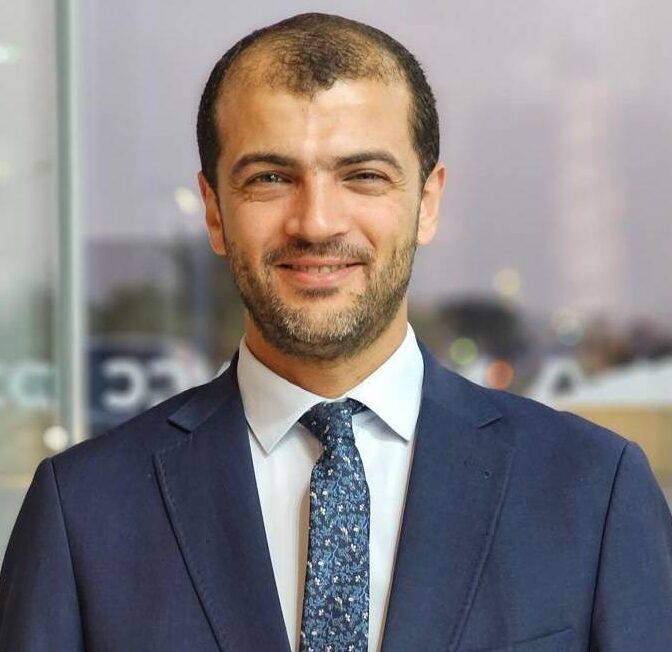The IHH Humanitarian Relief Foundation operates in Latin America by aiding victims of disasters, persecution, hunger or violence, without prejudice based on region, faith, language, race or sect. Since 1992, the Organisation has safeguarded vulnerable and homeless communities, aiming to counter human rights violations and secure their fundamental freedoms. The project was born voluntarily and formalised in 1995. Since then, such activities have spread to a hundred countries and have become a charity bridge from Turkey.
Mehmet Çelik represents the IHH Foundation in Latin America and explains its humanitarian reach to MEMO Brazil.
The IHH Foundation is well-known for supporting children and their parents in several countries, especially victims of war and conflict. What is the nature of your humanitarian aid?
The IHH provides monthly financial and moral support to over 100,000 orphans. Our organisation has 40 orphanages in Asia and Africa, sheltering approximately 5,000 children and providing assistance. Furthermore, we aid people who became refugees due to worldwide conflicts and war. Some of our projects focus on the Syrian war, which is ongoing on the Turkish border. We help people suffering from the effects of war in Asia and Africa, as well. Eventually, due to the several problems stemming from the Ukrainian war, we have improved our aid to the neighbouring countries.
Is it financial aid?
Not only financial. The IHH supports war victims by building houses, shelters, health and education facilities and regularly sending clothes and food. Our organisation also tries to relieve community grievances by drilling wells in Africa and Asia. We have excavated roughly 12,000 wells in at least 41 countries. We also support vulnerable people by performing cataract surgeries in several countries, mainly in Africa. Since we began our work, we have conducted about 160,000 cataract surgeries. We have also contributed to orphans’ families by fulfilling development efforts with our “Day of Orphan Solidarity” initiative. We have donated small animal stocks to help the families’ livelihood, as well as sewing machines, small businesses and so forth. We help them to live independently; we have projects in several areas.
Does this include emergency projects in case of disasters?
Yes, earthquakes, flooding, etc. We perform emergency aid activities for natural disasters all over the world. We also organise symposiums against human rights abuses. We have projects during religious holidays, including Ramadan. You can visit our websites for more information.
In how many countries does the IHH operate?
The IHH Foundation realises regular, continuous projects in roughly 130 countries and regions.
Is the IHH affiliated with the Turkish government, or does it works independently?
The IHH is a private foundation established in Turkey in 1995. It performs national and international projects as a private organisation. We incorporate projects with public agencies from time to time, such as the Turkish Cooperation and Coordination Agency (TIKA), Kızılay, etc.
Do you work with local institutions in Brazil and Latin America?
We keep in touch with the Islamic community and its associations in Brazil and Latin America, as well as municipalities and private foundations all across the region. We collaborate with such institutions on targeted projects for those who need it the most.
When did you start working in Brazil?
Our Brazilian studies began in 2006, with the religious holidays.

Humanitarian activity in partnership with the Cinco Pilares Institute in Brazil [IHH]
Which other Latin American countries enjoy IHH projects and activities?
From Mexico to Argentina and Chile, the entire Latin America is our field of study. We have performed Ramadan projects in several countries. Over the years, we also helped victims of natural disasters, aiming to expand our work field and number of projects.
Which community groups do your projects support?
The IHH Foundation projects do not discriminate by region, religion, language, race and so forth. We perform efforts targeted to crucial needs, without discrimination. Our projects include every person from every background, victimised for several reasons. Furthermore, the IHH has developed essential connections with the international Islamic community.
What do you plan for Brazil and Latin America?
We want to expand the range of our projects and the number of institutions we keep in touch with. We aim to develop our relationship with Latin American institutions in order to perform new activities in every country in the region.
What can you tell us about your Colombian office? When was it opened? What are your strategic plans and most important tasks?
The IHH Foundation has worked in Latin America for over 15 years. We have been in Colombia since 2019, to perform studies in a more organised way and keep closer contact with local institutions. Like other Turkish agencies — for instance, TIKA, Maarif Foundation, Cultural Centre Yunus Emre and so forth — the IHH keeps working to open official offices all over the continent. We intend to open a representation office shortly. Therefore, we will have the opportunity to be more connected with every country in the region and expand the number and range of projects.
INTERVIEW: The ‘I Hear U’ project builds medical bridges between Brazil and refugees

![Humanitarian activity during Ramadan in Latin America [IHH]](https://i0.wp.com/www.middleeastmonitor.com/wp-content/uploads/2022/05/WhatsApp-Image-2022-04-13-at-11.21.08-AM-1-1-e1651590963798.webp?fit=920%2C613&ssl=1)

![WhatsApp-Image-2022-04-25-at-1.10.35-AM Humanitarian activity during Ramadan in Latin America [IHH]](https://i0.wp.com/www.middleeastmonitor.com/wp-content/uploads/2022/05/WhatsApp-Image-2022-04-25-at-1.10.35-AM.webp?w=618&h=463&ssl=1)
![WhatsApp-Image-2022-04-13-at-11.21.08-AM-1 Humanitarian activity during Ramadan in Latin America [IHH]](https://i0.wp.com/www.middleeastmonitor.com/wp-content/uploads/2022/05/WhatsApp-Image-2022-04-13-at-11.21.08-AM-1.webp?w=294&h=165&ssl=1)
![WhatsApp-Image-2022-04-25-at-1.13.11-AM Humanitarian activity during Ramadan in Latin America [IHH]](https://i0.wp.com/www.middleeastmonitor.com/wp-content/uploads/2022/05/WhatsApp-Image-2022-04-25-at-1.13.11-AM.webp?w=294&h=294&crop=1&ssl=1)






